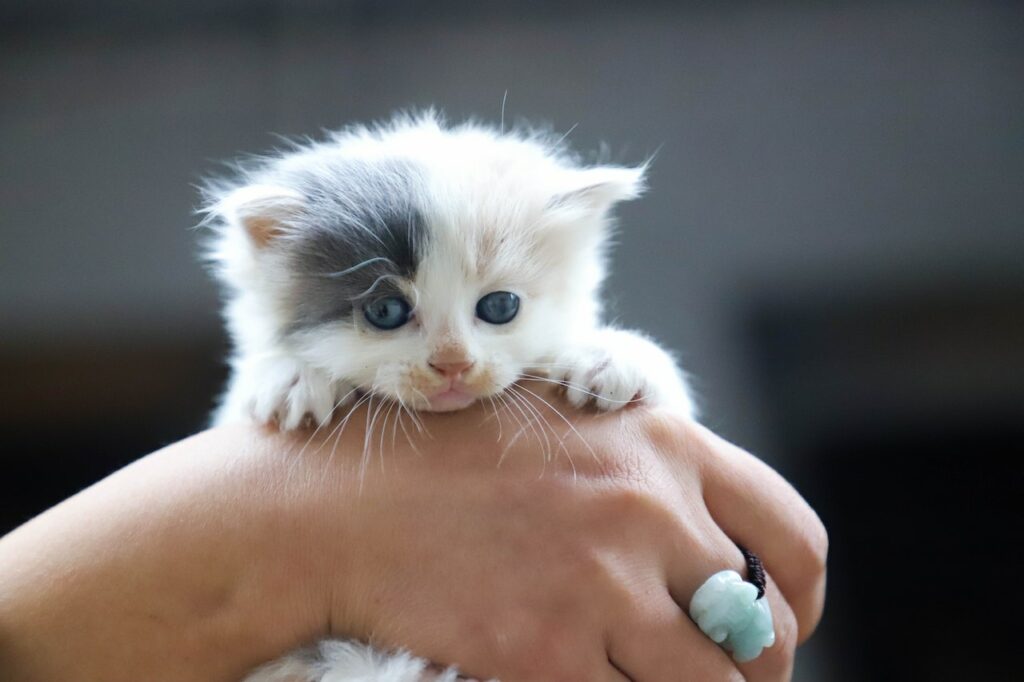Do Kittens Fart? Exploring the Causes and Solutions of Flatulence in Young Cats
Are you the proud parent of a new kitten? If so, you may have noticed some unusual sounds from your little furball. Do kittens fart? The answer is yes – and in this article, we’ll explore why cats and kittens do it, how to manage their flatulence levels if needed, and more! From diet to behaviour to health issues that can cause excessive gas, learn about kittens’ farts here. So read on and discover how to keep your furry friend happy and healthy!
Do Kittens Fart? A Comprehensive Guide
We’ve all been there. You pick up your kitten, snuggle them close and breathe in the sweet scent of their fur, only to be met with a whoosh of air that can charitably be described as unpleasant. Is it possible that your little bundle of joy is capable of such a feat? Does it even matter if they do
What Causes Farts?
Before diving into whether kittens can produce flatulence, let’s take a step back and look at what causes farts. The gas found in farts is mainly nitrogen and carbon dioxide, which comes from swallowed air and bacteria breaking down foods in the intestines. Animals may also produce methane or hydrogen sulfide, depending on their diet. The more you eat, the more bacteria will work on food particles – and this way, more gas will be produced!
Do Kittens Fart?
So now that we know how gas is generally made, does this mean kittens can do the same thing? In short: yes! Like humans and other mammals, kittens have digestive systems that contain bacteria that break down food particles into gases. Therefore, like adult cats (and other animals), kittens too can fart. But don’t worry – unlike adult cats who can rip some serious smelly ones! – kitten farts are typically mild and not very noticeable unless you’re paying attention.
What Do Kitten Farts Tell Us About Their Health?
Kitten farts tell us about more than just their ability to produce gas; they can also provide valuable insights into our furry friends’ health. Suppose your kitten is farting excessively or emitting pungent odours (which may indicate an infection). In that case, it’s best to take them to a veterinarian for a checkup as soon as possible. Additionally, if your kitten has recently undergone major dietary changes or been given antibiotics (which can disrupt their gut microbiome), then an increase in gassiness could be expected – so keep an eye out for any signs that something might not be quite right.
The Benefits of Kitten Farts
While we often think of flatulence as gross or inconvenient – this isn’t always the case! Believe it or not, there are several benefits associated with cat (and kitten) farts:
Helps digestion:
As mentioned above, passing gas helps move undigested material through the intestines, making it easier for your pet’s body to absorb nutrients from its food. This means that when your kitty passes gas, it indicates healthy digestion!
Releases toxins:
In addition to helping with digestion – farting also releases toxins stored up in the body which can improve overall health if done regularly. Your pet should pass gas occasionally throughout the day if they’re feeling healthy; pay attention if this suddenly stops happening, as it could indicate an issue with their gastrointestinal tract!
Reduces stress:
Believe it or not – research has found that passing gas can help reduce stress levels by releasing pent-up energy within the body, which has been linked to increased feelings of relaxation afterwards – so don’t feel too embarrassed next time your kitty lets one rip!
Tips For Maintaining Healthy Kitten Fart Levels
Check out these tips for keeping your kitty’s gassiness under control:
Monitor Diet:
Keeping track of what your kitty eats can help you identify any potential issues early on (for instance, switching from wet food to dry, causing stomach upsets). Also, ensure they have access to plenty of fresh water daily, as dehydration can also contribute to excessive flatulence!
Exercise Regularly:
Encouraging physical activity through playtime is important for keeping digestion running smoothly – plus, playing helps reduce stress levels, too, so it’s a win-win for both owner & pet!
Add Fiber To Diet:
Adding fibre-rich foods such as pumpkin puree (in small amounts) can help move things along through the intestines much smoother & faster – reducing chances of excess gasses being released later on down the track 🙂
Conclusion
In conclusion – yes, kittens do fart, but generally speaking, these aren’t noxious odours like those produced by adult cats & dogs (or even humans!). While gassing up isn’t usually something people want around themselves – some level of flatulence does indicate good digestion & proper absorption rates from food sources which may benefit overall health when kept within normal levels 🙂 So next time you catch a whiff while cuddling up with Fluffy just remember – sometimes those stinky smells mean good things 😉
If you’re looking for a way to protect your furry friend from any health issues related to their diet or lifestyle, why not consider pet insurance from Furrr.co.uk? With plans starting as low as £4.99 a month, it’s easy and affordable to get the care your kitty deserves – no matter how gassy they get! So why not check out Furrr.co.uk today and make sure your kitten is covered for whatever life throws at them? Sign up now and keep Fido safe & sound! And while you’re there – don’t forget to take advantage of their 10% discount when you sign up by June 30th 2021! So what are you waiting for? Head over to Furrr.co.uk now and start protecting your kitten today! Hurry – this offer won’t last long!










